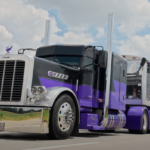Tolerating double brokering means tolerating fraud.
The Wall Street Journal published an article on April 26 about the surge in load board fraud and double brokering. According to the article, Truckstop, a leading load board provider, reported a 400% increase in fraud cases from Q4 2021 to Q4 2022, the highest level recorded since 2004. This news likely didn’t surprise those in the truckload brokerage industry, as load board fraud has been a long-standing issue causing inefficiency and wastage.
There are two major types of load board fraud:
- Double brokering.
- Load phishing.
Double brokering has been around for years, while load phishing is relatively new.
How load boards are supposed to work
Before diving into the two types of fraud, we should take a look at how load boards are intended to work.
A broker advertises a load on a public load board, seeking a carrier to transport it. Trucking companies select loads based on factors such as the origin, destination, service requirements, and the type of commodity. The price offered by the broker is typically not disclosed in the posting.
Load boards operate similar to Craigslist rather than Amazon, as they provide a list of potential trucking jobs, but the actual transaction takes place outside the load board platform, typically through email or phone communication.
Considering the vast number of freight brokerage firms (over 16,000) and registered motor carriers (400,000) in the U.S., it’s highly likely that carriers and brokers may not have prior business interactions. In many respects, the industry operates in a somewhat unregulated manner, resembling a Wild West scenario and surprisingly reliant on analog methods, despite investments made towards digitization in FreightTech over the past decade.
Once the trucking carrier expresses interest, the broker engages in a negotiation process with the carrier. Often, the broker communicates with multiple carriers regarding the same load, aiming to secure the most cost-effective carrier that meets the service requirements.
In a legitimate transaction, once a price is agreed upon between the broker and carrier, a rate confirmation sheet is sent to the carrier along with shipment details. The carrier proceeds to pick up the load, transport it to the designated destination, and informs the broker upon completion with a signed proof of delivery. Subsequently, the carrier invoices the broker, and the broker settles the payment to the carrier.
What happens in double brokering
In a double-brokered load, the outcome is very different.
Fraud occurs when a load is sourced on a load board by a supposed “carrier” that is not genuine. In reality, this “carrier” may not be a legitimate trucking company at all, but rather a third party using fake documents and lacking actual trucks.
The fake carrier agrees to the service terms and price offered by the broker, only to then broker the load to a genuine trucking company. The original broker remains unaware of the true identity of the carrier handling the load.
Unaware of the double brokering, the legitimate trucking company picks up the load, transports it, and delivers it while expecting payment for their services.
Here is where the fraud occurs. The original broker pays the illegitimate carrier (the one who double-brokered the load) for the service rendered. Since the fraudster did not incur any actual expenses in moving the load, they make pure profit from the transaction. The fraudster has no intention of paying the carrier who actually transported the load.
The carrier that actually performed the load service faces difficulties in obtaining payment from the double-brokering fraudster. However, since the fraudulent business is illegitimate, it fails to fulfill its payment obligations. By the time the carrier realizes the deception, the double-brokering fraudster has vanished. The carrier, despite completing the service and transporting the load, is left without payment.
The legitimate broker faces the risk of having to pay twice: once to the fraudster and once to the legitimate carrier. Although the broker may initially be unaware of the true identity of the carrier, if payment is not received, there is a possibility that the carrier may attempt to recover payment directly from the shipper. This may involve engaging a law firm or a collection agency to demand payment.
Cargo theft an even bigger problem for double-brokered loads
In a double-brokering scenario, there is a risk of the load being completely stolen. The original broker, lacking information about the actual carrier, remains unaware of who is handling the load. Without this knowledge, it becomes impossible for the broker to track the cargo’s whereabouts.
As the trucker receives the original load from a broker (the double-brokering fraudster) they connected with on a load board, they trust the legitimacy of the broker. After picking up the load, the trucker is contacted by the broker and informed of a change in the delivery destination.
Unaware of the underlying deception, the trucker proceeds to deliver the cargo to a compromised warehouse, oblivious to the fact that the cargo is about to be stolen. The trailer is stripped, and the cargo is stolen, with the intention of selling it on the black market.
Load phishing emerging as major load board fraud risk
A new form of load board fraud has emerged, aiming to steal cargo by employing tactics similar to wire transfer phishing.
Load phishing begins with a broker posting a load opportunity on a load board, including an email address. The broker receives an email from a supposed carrier interested in the load opportunity. A negotiation takes place between the broker and the carrier, resulting in the broker awarding the load to the carrier.
However, the individual behind the email is not legitimate. They may use a deceptive email address that closely resembles a legitimate carrier’s or falsely claim to represent a carrier. These fraudsters utilize genuine information and credentials from legitimate trucking companies, despite having no affiliation with those companies. The email may appear genuine, but there may be a slight variation in the address or it may come from a Gmail account pretending to be a carrier.
Once the fraudulent carrier secures the load booking, a driver is assigned to pick up the load, but the cargo subsequently goes missing or disappears entirely.
The risk of criminal prosecution is small
The criminals involved in load board fraud are becoming more intelligent and sophisticated over time, as is the case with successful criminal enterprises.
Load board fraud is a significant and highly organized crime, allowing perpetrators to make substantial profits quickly and with minimal risk of prosecution. Many of these criminals operate from overseas, and the proliferation of offshore brokerage and service centers has made it challenging to distinguish between legitimate and fraudulent entities.
Unfortunately, the trucking industry receives little support from federal agencies or police departments in investigating these crimes. Victims, including shippers, carriers, and brokerages, often receive minimal assistance from authorities when reporting such incidents.
Given that load board fraud often occurs online, crosses multiple jurisdictions and international borders, and involves interstate commerce, it should ideally fall under the purview of the FBI for investigation. However, the individual fraudulent transactions are typically small, amounting to less than a few thousand dollars, which may not be a high priority for a federal investigative agency with larger cases to handle.
Furthermore, load board fraud is not well understood, even by sophisticated investigators, let alone a jury if the case were to reach the court system. It is unexpected that the truckload industry, with its massive $800 billion worth of commerce, still relies on a Craigslist-like posting board for a significant portion of transactions.
As shippers increasingly fall victim to cargo theft facilitated through load boards, there will likely be growing pressure to shift freight away from public load boards to private 3PL networks with pre-vetted parties.
If load boards want to safeguard their business models, they must strengthen marketplace regulations and invest in fraud prevention tools.





